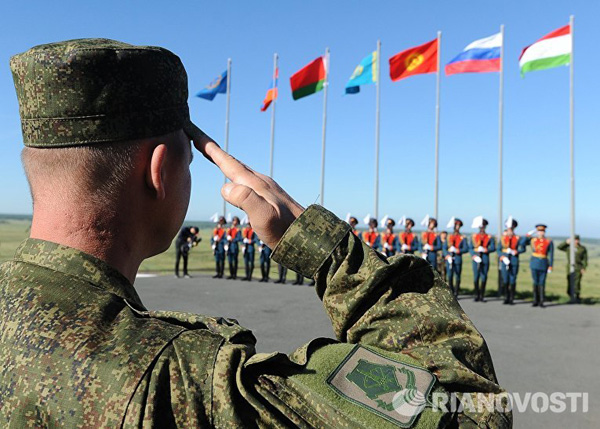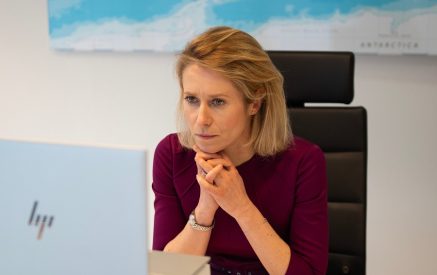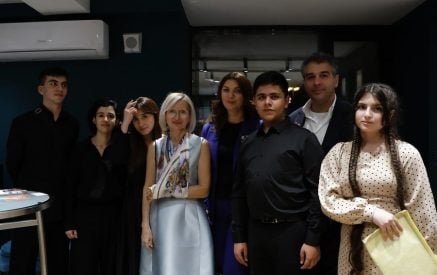Military alliances are known to people since the time when the states are created. And the history has recorded a variety of alliances: justified, unjustifiable, successful, unsuccessful and so on. But it rarely happens when the alliance is simply not serious, and the ally which calls itself a “strategic” one is even more unserious, and having such an “ally”, no need to have an enemy.
Thus, Armenian and Russian authorities have decided that we are just “strategic ally”, and even more. Russia has created a military alliance consisted of former post-Soviet states, and it was called a CSTO, which decided to hold a summit in Yerevan.
As to what turns out of this, the Russian pro-government press was the first to write about it, and it wrote that nothing actually turned out. Let us not repeat the details, there is no need for it. So as there is no need to repeat the substantiations that the interests of Armenia and Russia do not match in the region and in the international arena but are also mutually exclusive, objectively and fundamentally.
The entire problem is that Moscow and Yerevan did not draw any conclusions from the failure, and apparently, hardly they will draw any. It is not about the ability of thinking but the inability of making practical conclusions. This, in turn, has its own reasons.
Read also
For official Yerevan, any equivalent practical consequence generating from the situation is a move towards uncertainty, and not so much in foreign political as in domestic political sense. To be more precise, the feasibility of all self-reproduction mechanisms is immediately put under a question. As a result, all positions of corruption and oligarchic system are seriously questioned. Consequently, it excludes that Yerevan itself will voice these very practical conclusions because briefly saying, it does not have any grounds for political suicide. Plus, the factor of Nagorno-Karabakh conflict.
Official Moscow also cannot allow itself similar practical conclusions for the same reasons. But not only. Moscow’s “stone” is much heavier, and not only inside but also in the world in general: Syria, Ukraine, international sanctions, International Criminal Court, London nuclear terrorism (Litvinenko’s case), international links with organized crime (Spanish prosecutor’s accusation) and so on. And Moscow resists all this at once, explaining inside that it begins to “get up from knees”, and imposing nuclear blackmail to the world, it is trying to compel Yalta-2, in other words, a new distribution of zones of influence, a review of the outcome of the Cold War, recognition of Russia’s exclusive interests and superpower in the post-Soviet territory, including in Armenia. Certainly, it is obvious that even the USSR could not stand, and in the 40’s of last century, the Yalta-Potsdam dividing lines, walls and barbed wires collapsed over the head of Moscow. But how to explain this to Putin when he does not want to understand it? And he does not want because this “Eurasian Union” neo-imperialistic project has become the final stop of his dictatorship.
As a result, what remains for Moscow and Yerevan is only to push on the campaign. They will try to tell what successes Yerevan is registering in the Eurasian Economic Union while Russia will “soon begin” to develop, how Moscow’s “enemies” are trying to interfere in this matter but the sanctions “do not affect”, “Iskander” missiles wandering in the streets, initiating unrelated rallies in Russia and Armenia and so on.
All this is no longer viable and in general, it is just unserious. Certainly, Armenia had the proper resources to prevent all this, and instead of using these resources, Armenia donated it to Moscow in the name of “age-old friendship”. And today, the move and behavior of Yerevan are imposed by the errors of the past and the fear of not being able to withstand the current pressures. And in this situation, hoodwinking on the theme of “Eurasian benefits” and the domestic political changes against the background of imitation channel is also not serious.
As for Moscow… Russian Emperor Nicholas I, whom the Decembrists were calling “Palkin”, suppressed the Hungarian uprising in 1848-49 by presenting it as a gift to the Austro-Hungarian Empire. He sent a large army there under the commandership of Field Marshal, Prince of Warsaw, Earl Paskevich-Erevanski. After that, the Habsburgs Empire rescued by Russians was to collapse only 70 years later. And when in 1853, Russia was attracted in the disastrous Crimean War and asked for assistance from Vienna, they say that the Austro-Hungarian foreign policy architect Klemens Wenzel von Metternich has exclaimed, “We would still astonish Europe with our ungratefulness.” Let us not forget to recall that serfdom was abolished in Russia when Russia lost in the Crimean War, and the son of unfortunate “Palkin”, Alexander, realized that an era has been changed…
Unserious unions and alliances cannot remain unpunished. They are unserious when they are formed opposite to legal interests. Punishment does not come immediately but deferred, as they say, “in one nice day.”
Ruben MEHRABYAN






















































